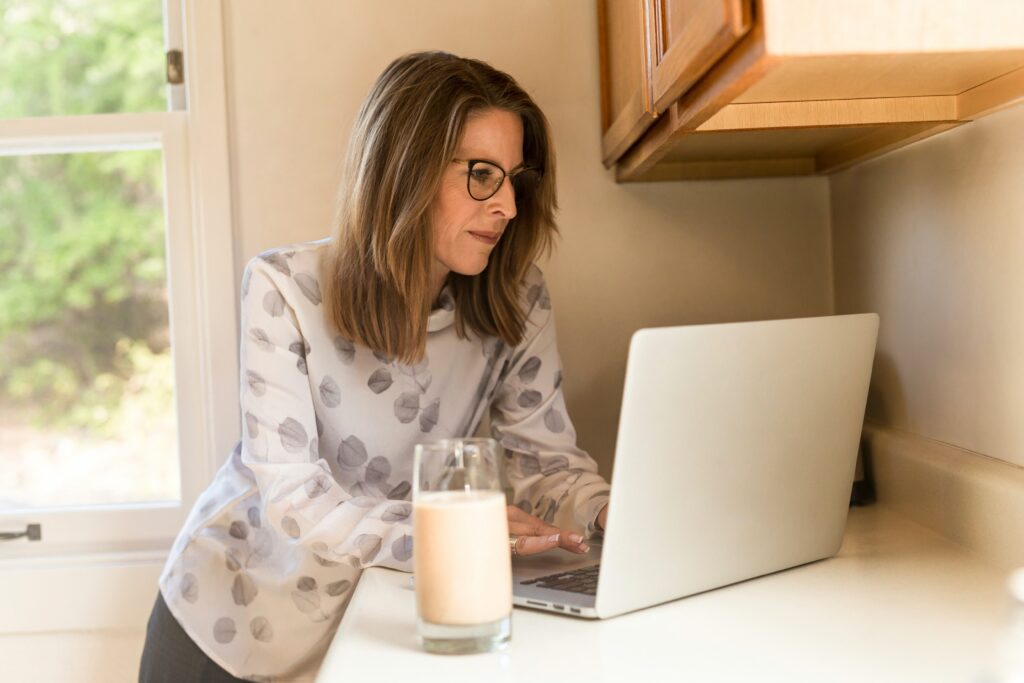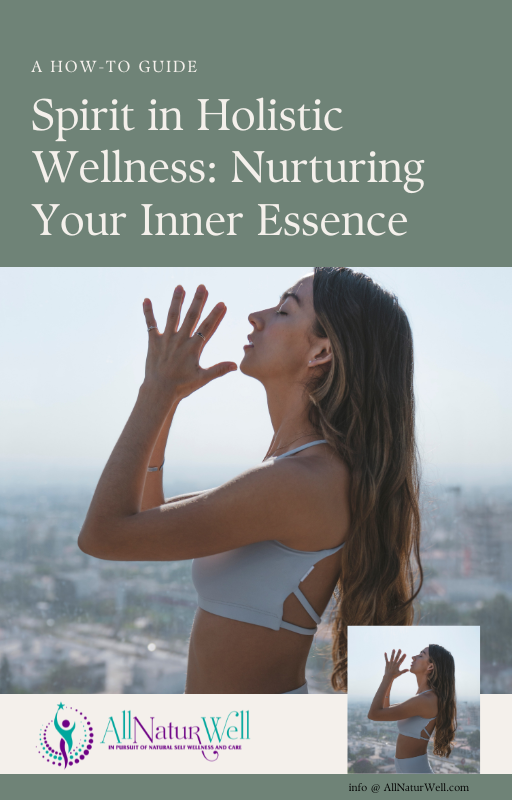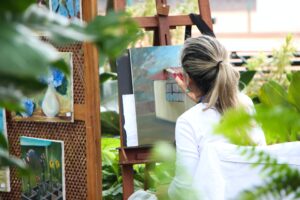Mental Health Misconceptions: Debunking the Myths
Embarking on a new holistic life path is a profound journey and personal due diligence is the compass that guides your way. In the realm of holistic well-being, where mind, body and spirit converge, it’s imperative to know the facts before embracing change.
Debunking mental health misconceptions and myths is a crucial step in shaping a balanced mindset. Understanding the nuanced landscape of mental health ensures that decisions are informed, fostering genuine well-being.
Personal empowerment comes from dismantling myths that may cloud judgment, allowing for an authentic and intentional pursuit of a holistic life path. It’s not just about embracing change; it’s about understanding the change you’re embracing and cultivating a foundation built on knowledge, compassion and self-awareness.
So, let’s take a look at some misconceptions.
Debunking the Myths
Embracing Mental Health as Part of Self-Care
- Misconception: Mental health is separate from physical health.
- Correction: In reality, mental and physical health are deeply interconnected. Your mental well-being is an integral part of your overall health. Embrace it as such to encourage a comprehensive approach to self-care that nurtures both your mind and your body.
- Additional Insights: Recognizing the mind-body-spirit connection is crucial. Numerous resources explore this holistic perspective. A highly recommended book is “The Mind-Body Prescription” by Dr. John E. Sarno. It delves into the intricate relationship between mental and physical health, offering insights and practical steps to enhance both.
- Take A Step: Start your journey by incorporating mindfulness practices into your daily routine. Begin with simple activities like mindful breathing or a short meditation session. This immediate step connects you with your mental and physical state, fostering a holistic approach to well-being.
Shedding the Stigma
- Misconception: Mental health challenges are a sign of weakness.
- Correction: It’s crucial to recognize that experiencing mental health challenges is a part of the human experience, not a reflection of weakness. Break the stigma by fostering open conversations and empathy. Understand that seeking help is a courageous step towards holistic well-being.
- Additional Insights: Explore narratives that dismantle the stigma around mental health. “Daring Greatly” by Brené Brown is an excellent read. Brown challenges societal expectations, encouraging vulnerability and dispelling the notion that acknowledging struggles is a sign of weakness.
- Take A Step: Engage in a conversation about mental health with someone you trust. Sharing experiences reduces stigma and opens the door for understanding. Remember, seeking support is a strength, not a weakness.
Medication Myths
- Misconception: Medication is the sole solution for managing mental health conditions.
- Correction: While medication can be a valuable part of treatment, it’s not the only option. Holistic wellness encourages exploring various approaches, from therapy to lifestyle changes, to address mental health challenges comprehensively.
- Additional Insights: Understand that medication is a tool within a broader toolkit. “An Unquiet Mind” by Kay Redfield Jamison provides a personal account of living with bipolar disorder and the multifaceted nature of treatment, including medication and therapy.
- Take A Step: Research and explore different treatment options for mental health conditions. Consult with a mental health professional to discuss personalized approaches that may include therapy, lifestyle adjustments and, when necessary, medication.
Understanding Therapy
- Misconception: Therapy is only for those in crisis; it’s not a tool for personal growth.
- Correction: Therapy is a powerful resource for personal growth, self-discovery and maintaining overall well-being. It provides a supportive space to explore thoughts, emotions and behaviors, irrespective of crisis situations.
- Additional Insights: Therapy is akin to a mental fitness routine, promoting resilience and self-awareness. “The Gifts of Imperfection” by Brené Brown delves into embracing vulnerability and imperfection, fostering personal growth.
- Take A Step: Consider trying therapy as a proactive step for personal growth. Look for therapists specializing in areas like mindfulness-based therapy or positive psychology to explore new perspectives.
The Role of Holistic Approaches
- Misconception: Conventional treatments alone are sufficient. Holistic approaches are alternative therapies with no real scientific basis.
- Correction: Holistic approaches complement conventional treatments, focusing on root causes and overall balance. They encompass evidence-based practices and lifestyle changes.
- Additional Insights: Books like “The Mindful Way through Depression” by Mark Williams offer insights into holistic approaches, combining mindfulness with cognitive therapy.
- Take A Step: Integrate mindfulness into daily life. Start with short mindfulness exercises, and explore resources on mindful living. The app “Headspace” is a beginner-friendly guide. Check it out and see what you think.
Debunking the Myths
Advocating for Mental Health
- Misconception: Mental health is a private matter and only for those directly affected.
- Correction: Advocacy is vital for everyone; it promotes awareness, understanding and accessibility to resources, fostering a compassionate society.
- Additional Insights: “Crazy: A Father’s Search Through America’s Mental Health Madness” by Pete Earley provides a poignant perspective on the mental health system. It is an extremely interesting book.
- Take A Step: Share mental health resources on your social platforms. Support local mental health initiatives or volunteer with organizations working towards mental health awareness.
Empowered Decision-Making
- Misconception: Medication is the sole solution, limiting choices for holistic wellness.
- Correction: Medication can be valuable, but holistic wellness involves exploring various approaches, from therapy to lifestyle changes, for a well-rounded treatment plan.
- Additional Insights: “The Empowered Empath: A Simple Guide on Setting Boundaries, Controlling Your Emotions, and Making Life Easier” by Judy Dyer offers tools for self-empowerment.
- Immediate Actionable Step: Research alternative therapies like mindfulness, acupuncture or herbal supplements. Consult with a holistic health practitioner to explore complementary options for mental well-being.
Conclusion
By debunking these mental health misconceptions, you’re not only gaining clarity for yourself but also contributing to a culture of understanding and compassion. Remember, your journey toward holistic well-being is unique, and embracing it empowers not just you but those around you. Here’s to breaking myths, fostering awareness and creating a more compassionate world—one step at a time.
You Might Be Interested In
Imagine wellness not just as the absence of illness, but as a harmonious symphony where physical, mental and emotional health find resonance with the soul. In this exploration, we acknowledge the spiritual dimension as the compass guiding us towards balance, purpose and a sense of connection to something greater than ourselves.
Whether you are seeking solace, searching for purpose or simply intrigued by the idea of integrating spirituality into your well-being, this journey is for you.
ADDITIONAL RESOURCES
Books:
The Body Keeps the Score: Brain, Mind, and Body in the Healing of Trauma by Bessel van der Kolk: This book explores the connection between the mind and body in the context of trauma, shedding light on the importance of holistic approaches to mental health.
The Holistic Guide to Decluttering: Organize and Transform Your Space, Time, and Mind by Michele Vig: Michele Vig’s guide connects the dots between an organized physical space and mental well-being, providing practical insights for a holistic approach to life.
Websites:
National Alliance on Mental Illness (NAMI): NAMI provides comprehensive information, support, and resources for individuals and families affected by mental health conditions, promoting awareness and advocacy.
Mindful: Mindful.org offers articles, guided meditations, and resources on mindfulness, supporting individuals in integrating mindfulness into their daily lives for improved mental well-being.
Scientific Studies:
Title: “Mind-Body Practices and the Self: Yoga and Meditation Do Not Quiet the Ego, but Instead Boost Self-Enhancement.”
- Authors: Tang, Yi-Yuan, et al.
- Published in: Psychological Science, 2015.
- This study delves into the impact of mind-body practices on the self, providing insights into the psychological effects of activities like yoga and meditation.
Title: “The Gut-Brain Axis: The Missing Link in Depression.”
- Authors: Foster, Jane A., et al.
- Published in: Clinical Psychopharmacology and Neuroscience, 2019.
- Exploring the connection between gut health and mental well-being, this study highlights the importance of a holistic approach to mental health that includes dietary considerations.
Disclaimer: The information and/or products mentioned in these article are provided as information resources only and are not to be used or relied on to diagnose, treat, cure or prevent any disease. The statements made in this article have not been evaluated by the Food and Drug Administration. Any products mentioned are not intended to diagnose, treat, cure, or prevent any disease, but rather to be considered as an informational resource only to encourage critical thinking and personal research. The information in this article is intended for educational purposes only. The information is not intended to replace medical advice offered by licensed medical physicians. Please consult your doctor or health care practitioner for any and all medical advice.
and don't forget to sign up for our weekly newsletter. it's free!

52 Weeks, 52 Topics! Get Our Latest ‘Stay Well’ Newsletter Every Monday And Start Your Week Off AllNaturWell. A New Tip, A New Study Revealed, A New Product Reviewed. Get It Right To Your Inbox Weekly. No Need To Wait. It’s Free!





